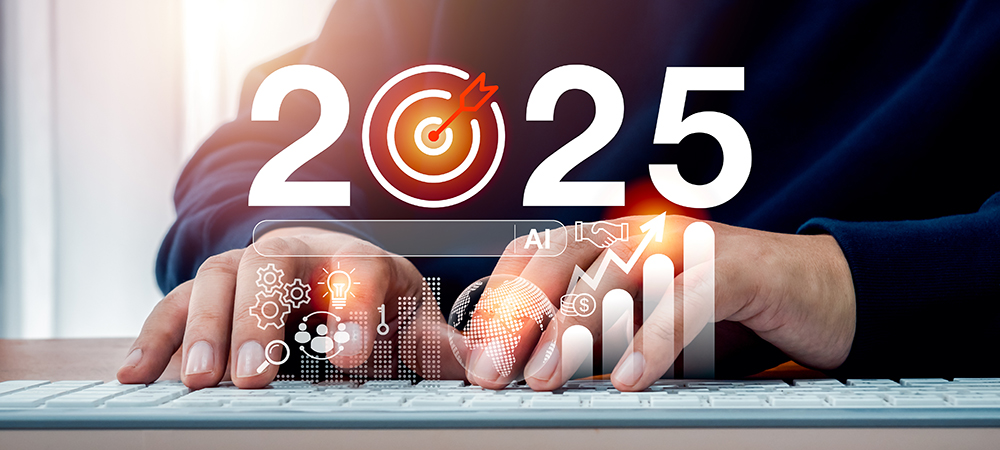Over the next year, customers will seek partners who can deliver scalable, flexible AI solutions that align with their business needs.
Fred Voccola, CEO, Kaseya
Technology always has been, and always will be, the future. In the next two decades, the percentage of the economy made up of small to mid-sized businesses is going to exponentially grow. Thanks to technology, SMBs can compete with larger, global brands like they never could before.
SMBs’ productivity increases since they now have access to the same technology big companies have and this allows them to be more entrepreneurial. They are making up a larger portion of the global economy, which presents tremendous opportunity for managed services providers, MSPs. Many of these SMBs do not have internal IT and security. Their systems are their most important assets, and they need MSPs to deliver it for them.
The downside is that since it is a great market to be in, there will be a lot of competition. The MSPs who are effectively able to leverage automation to make their teams more productive, and have a cost structure in place, will win. They will have more efficient engineers that yield more revenue. They will also have lower software and technology costs because instead of spending 25% on their software and hardware kits, they will be spending 10% or 15%. As a result of these two things – their gross margins will be higher, and therefore, they can invest more in their business, be aggressive on pricing and still meet their financial objectives.

Vendor fatigue is real and MSPs are looking to converge their spending with as few vendors as possible to drive profitability.
Managed Service Providers, MSPs will demonstrate a preference towards platform solutions – whether it is a security platform, endpoint security platform, backup platform or an all-in-one IT and security platform. Vendor fatigue is real and MSPs are looking to converge their spending with as few vendors as possible to drive profitability and improve efficiency.
Vendors have begun to respond to this expectation with offerings anywhere from a pricing bundle to a full platform offering everything in-between. Vendors are looking to partnerships to deliver to this expectation – however, pricing bundles and packages based on partnerships are likely to fall short of expectations of delivering a truly integrated platform experience – from onboarding and invoicing to support and workflow automations.
MSPs will seek to gain workflow efficiencies and lower their costs and hence drive profitability through automation. They will rely on vendors to leverage Artificial Intelligence, AI to deliver this automation and will want to market AI-driven services to their customers to differentiate themselves. AI-driven automation from vendors will be focused on service delivery optimisation.
The vendors most likely to succeed are the ones that have a platform with access to telemetry and technician behaviour across the wide swath of tools to best leverage AI to identify and optimise their workflows. MSPs will continue to have to invest in automation to maximise the benefits.
MSPs will demand a much better customer experience across sales, onboarding, post-sales support and billing. Vendors, big and small, have failed to meet customer expectations on these fronts. MSPs will prioritise customer experience over best-of-breed functionality when determining which vendor to consolidate their spending with.
Enterprise-grade service providers looking to move down market to the SMB segment will continue to experience pricing pressure and reduced margins in the SMB segment while having to compete with Microsoft at the same time for those SMBs willing to spend top dollar for an all-in Microsoft service.

Hyper-localisation is a trend that allows smaller businesses to compete with larger players by creating bigger local relevance.
Automation-as-a-Service will be a big growth area for MSPs, allowing them to deliver affordable and scalable automation solutions directly to their SME clients without the need for a huge infrastructure overhaul. By helping their clients automate repetitive and administrative tasks, MSPs will empower SMEs to optimise their operations and boost growth and profitability.
This, once again, raises the MSP’s role from a partner who traditionally provides reactive IT support to a strategic partner for proactive business enablement.
Another huge opportunity for the channel is Compliance-as-a-Service; it is becoming a critical area for MSPs to invest in. Demand was bigger than expected in 2024 and this will continue into 2025. In an increasingly complex regulatory landscape, SMEs struggle to keep up with constantly changing requirements and they will need expert help with becoming and staying compliant.
MSPs are uniquely positioned to offer this support as a high-value service, further strengthening their role as trusted advisors.
We are also seeing a massive shift from one-time sales to recurring revenue models. Many SMEs will be looking to adopt a subscription-based approach in 2025, as it helps with customer retention and a more predictable cash flow. MSPs can support their clients and unlock new opportunities by developing platforms for billing, customer engagement and data analytics that allow a smooth transition to a subscription model.
Hyper-localisation, tailoring services for specific regions or even neighbourhoods, is a trend that allows smaller businesses to compete with larger players by creating bigger local relevance and deeper customer connections. Again, this will become a growth area for MSPs as they can help clients leverage hyperlocal data to adjust their products, services and marketing strategies accordingly.
Many MSPs already operate in clearly defined markets and are well positioned to understand both their clients’ needs as well as the needs of their clients’ customers.

SMB decision makers are now more educated about what a comprehensive IT and security offering looks like.
Managed service providers are taking a more strategic role with their SMB customers as they invest more in technology and security. Lowering costs, adding value and becoming more efficient is the top priority of every MSP. Automation and Artificial Intelligence will play a critical role in this phase of the MSPs’ journey.
SMB decision makers are now more educated about what a comprehensive IT and security offering looks like. For this reason, a more complete, automated solution will be more important than ever, and MSPs will need to be ready to offer it to their customers.

Just as the Internet and smartphones needed decades to evolve, AI requires vast, purposeful data over time to reach its potential.
New technologies like Artificial Intelligence are expected to bring immediate transformation, but real impact often takes longer than anticipated. Just as the Internet and smartphones needed decades to evolve, AI requires vast, purposeful data over time to reach its potential. While AI’s short-term impact may be limited, its influence could become truly transformative by 2035.
One use of AI that MSPs really need to be vigilant about right now is cybersecurity. AI is helping cybercriminals deploy more sophisticated cyberattacks at a faster rate. MSPs must be proactive in their cybersecurity strategies to ensure their environments, and those of their customers, are secure.





